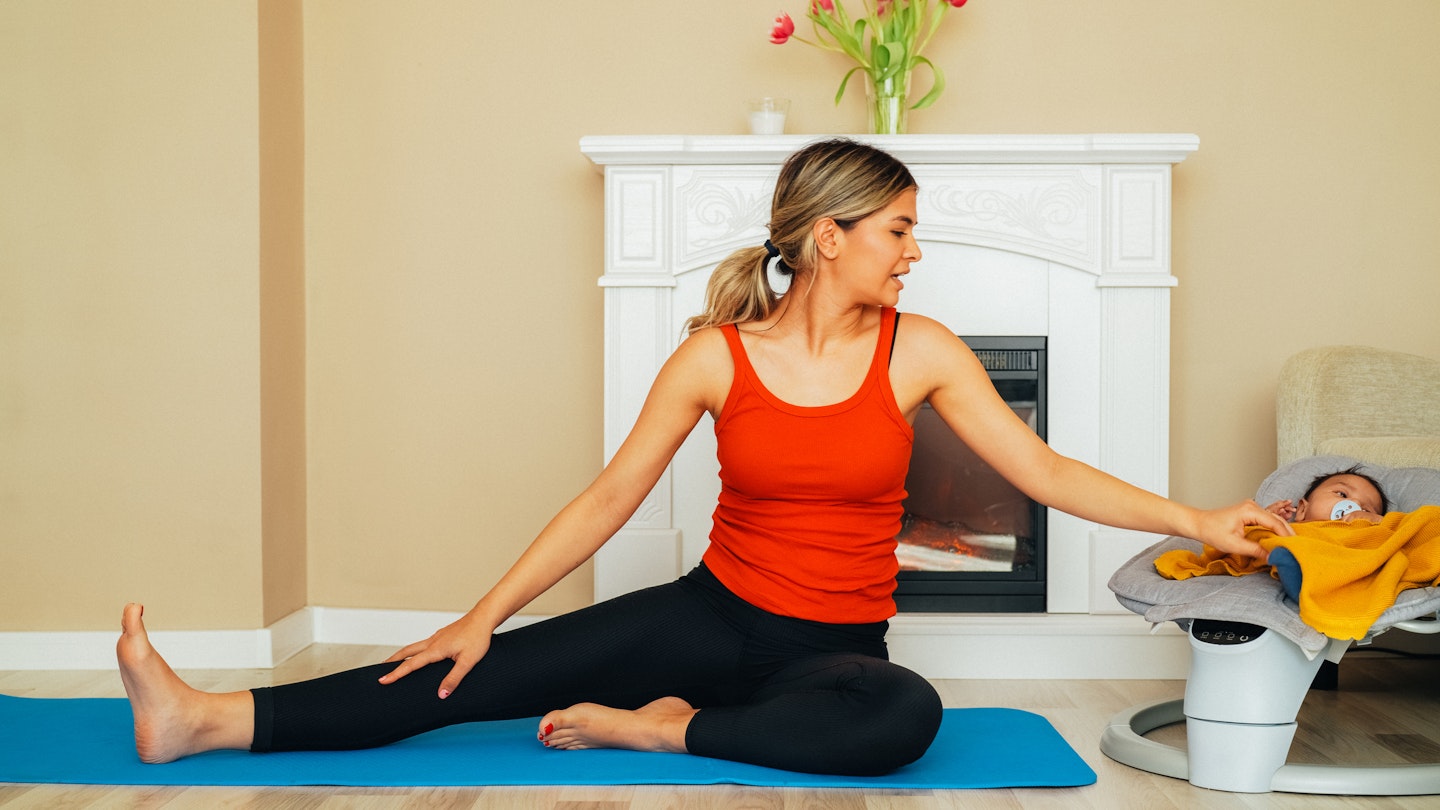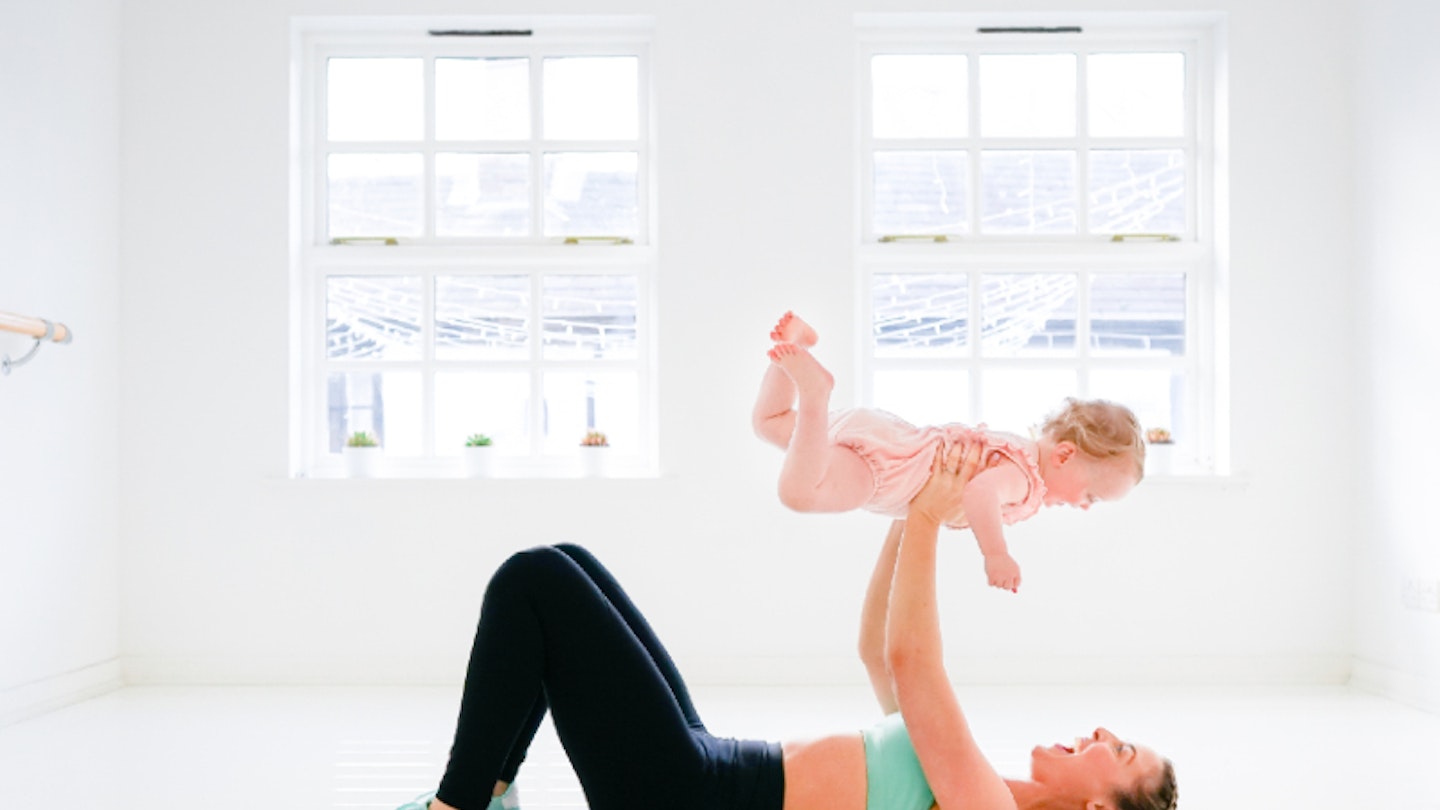Having a baby is a joyful yet challenging time, both mentally and physically. Although exercise may be the last thing on your mind in the early days, it can be a really beneficial way of energising and strengthening the body.
When you have the time and motivation to focus on starting to exercise again, it is vital to go about it the right way – safely and respecting your body. Whether you’re doing yoga, or wanting to hit the gym, it is important to be knowledgeable about the many physiological adaptations made in the body to accommodate pregnancy and childbirth. Even if you feel physically the same, it is worth being mindful of what has happened internally and to take care of your pelvis, hips and core, especially during exercise.
The Midwives at My Expert Midwife say: “Taking care of yourself after childbirth is important. Pregnancy, childbirth and looking after a new baby places enormous demands upon the body and the mind. In order to promote recovery in the postpartum period it is vital that you look after yourself, but the reality is that it can be difficult to feel like you. And note I say feel “like” you because you can never be that same person you were pre-pregnancy you have, like a caterpillar to a butterfly metamorphosised from the old you to a new you (a term known as Matrescence) and it’s important to embrace that."

"Of course, you can regain strength and fitness, but it is so important to acknowledge how tough pregnancy and birth has been on your body and to treat it with the respect it deserves to heal and repair before you move back to the more intense exercise you may have been used to. Repair and recovery need rest; sutures, major abdominal surgery, involution (the act of your uterus returning to pre-pregnancy state) not to mention the emotional and mental demands as hormones are switching and wreaking havoc.
"You will have heard the phrase “listen to your body” throughout your pregnancy and actually the postnatal period is no different. Your body has ways of letting you know when you are overdoing things after birth such as your lochia (bleeding) becoming heavier after starting to tail off. Your muscles, ligaments and joints have all been put under significant strains and pressures with the weight of the growing baby and adding extra strain on them after childbirth can cause long-term damage to them and to other organs such as your bowel and bladder."

"Exercise has connotations of intensity and of working towards achieving a specific goal, be that weight loss, fat loss or building muscle, whereas postnatally healthcare professionals want you to focus more on repairing and recovering both physically and mentally which can take many months, and is variable from woman-to-woman so avoid being caught up in the “ Snap-back” culture that is currently doing the rounds on many Social Media platforms, instead seek advice from healthcare professionals such as My Expert Midwife or qualified postnatal physical therapists."
"The Midwives at My Expert Midwife agree that we all prefer the term physical activity rather than exercise to cover the 4thTrimester (from birth up to 12 weeks) when you may still be bleeding, your breasts might be adapting to feeding your baby, and you will be tired and emotional from caring for your baby. Your ligaments and joints are also still much looser than they were pre-pregnancy as a result of the hormone Relaxin which continues to circulate your body for several months following childbirth. Your healthcare team will advise you to avoid having sex for at least six weeks postnatally (until you have had your postnatal check-up) and another of our Midwives favourite sayings is “If it’s too soon for sex it’s too soon to exercise” – they both place physical demands on your body for which it is not ready. Rushing back to exercise can lead to disastrous consequences such as urinary and faecal incontinence, musculoskeletal trauma and much more."
"You may have had a straightforward vaginal birth, you may have had an episiotomy or tear that needed sutures, or you may have been one of the 30% women in the UK that has a Caesarean Section; the mode of delivery will definitely impact your recovery. A woman who had a normal vaginal birth with no tears is likely to recover faster than a woman who had an instrumental or operative birth, or indeed a woman who despite a normal vaginal birth had a severe tear requiring sutures. Birth is individual as is your recovery."
"When you are caring for your newborn, you may feel as though there aren’t enough hours in the day to spare some precious self-care time. Regardless of the type of birth you have had, your body has done something amazing, but now needs you to take extra care to help with the recovery process."
"Investing in self-care doesn’t only benefit you, it benefits everyone else too, so it is important that you safeguard that time", they say.
The Midwives at My Expert Midwife advise the following short-term and long-term activities that can promote mental and physical health and wellbeing after childbirth:
Activities for straight after birth:
- A warm soak in the bath to help a sore, swollen perineum, soothe aching, stretched muscles, or ease a healing caesarean section wound
- Gentle stretches or taking time out to lie down can improve hip and back pain
- Starting regular pelvic floor exercises, as soon as you feel able to, can improve continence by strengthening your pelvic floor- there are apps available to help with this
- Gentle exercises such as simply walking and engaging your core or yoga can help separated abdominal muscles
Activities for the long-term:
- Regaining core strength and returning to your pre-pregnancy fitness levels with a gradual increase in activity levels
- Toning your pelvic floor muscles to help with short and long-term incontinence issues and sexual satisfaction
- Taking regular time out to focus on your own interests and needs
- Swimming is a fabulous low-impact all body workout for once you have stopped bleeding and stitches have healed and is great for your mental health as well
"Seeking support from a suitably qualified postnatal or pelvic health therapist can be incredibly beneficial in being guided through activity and exercise. They can personalise a programme that meets your own needs and wants based on your history and which will prioritise safety, recover and repair. It has taken 9 months for your body to change and adapt to grow your baby, give it at least this time, if not longer, to be back to somewhere close to pre-pregnancy."
About the expert:
Lesley Bland is an expert in antenatal care, homebirth, birth centre and delivery suite. Lesley has also worked as a Maternity Clinical Educator teaching doctors, midwives, and support workers at a large NHS Trust where she was part of the Senior Leadership Team. She is passionate about holistic care during pregnancy, labour and beyond, and about making positive differences to maternity experiences.
Mummy to a little girl, Adejumoke Ilori is Commercial Content Writer for Mother&Baby. With a BA hon in Creative Writing, she has worked for digital platforms, where she has empowered women from the inside and out, by sharing real life stories based on relationships and loving yourself.
